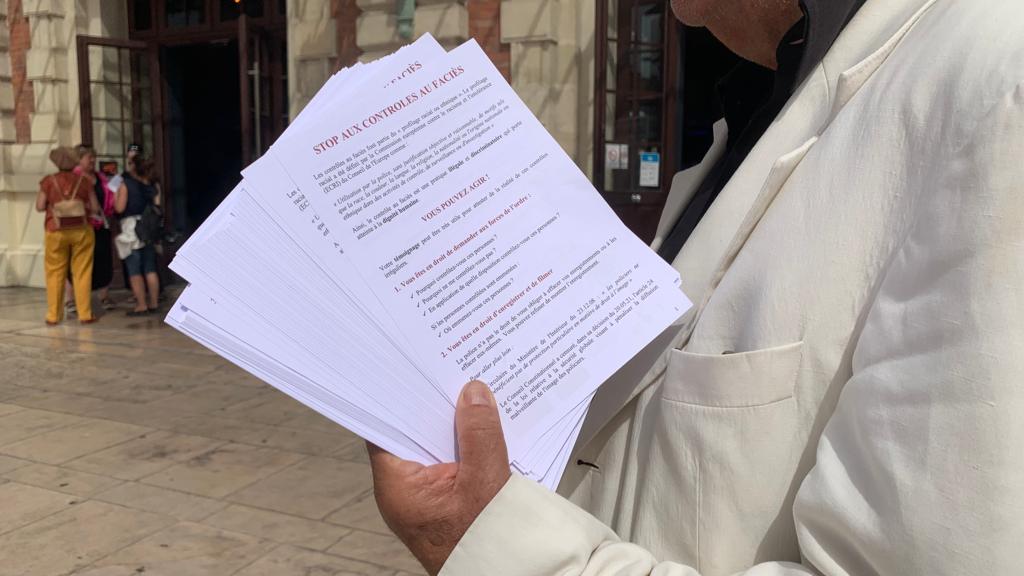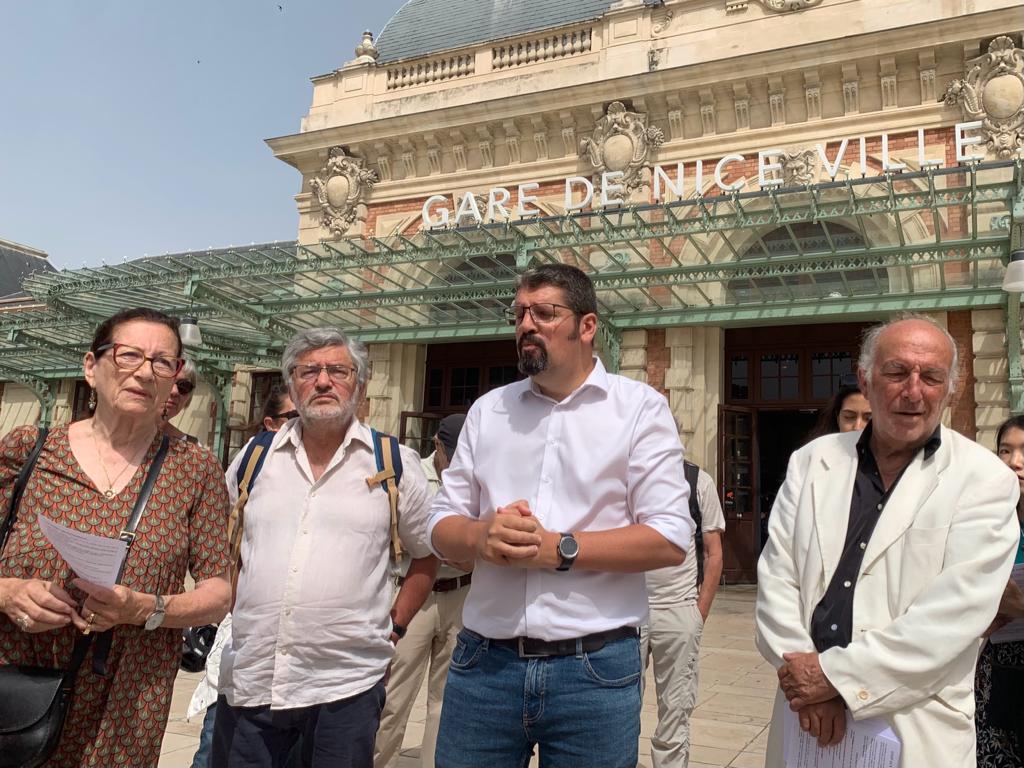Tous Citoyens! denounces “a significant increase” in these illegal practices. A dozen co-signing associations are raising awareness about an issue “at the intersection of everyday racism and the hunt for migrants.”
Gathered in front of the Nice-Ville Train Station, the volunteers are ready to distribute flyers. On the cards handed to passersby, users, and workers of the SNCF station is written: “Stop racial profiling checks”. These flyers are co-signed by ten local associations (1). Indeed, the Tous Citoyens! association has invited the media to a press conference to respond to the finding: there would be “a significant increase, even a generalization of racial profiling checks“. They are calling for an end to these discriminatory practices, which would amount to “everyday racism.”
According to their observations and collected testimonies, the victims are of different profiles: people coming from Italy seeking to apply for asylum in France as well as passengers making daily commutes to work or school. “While they integrate, while they work, they are constantly reminded that in the eyes of the police, they are foreigners, even though they are French,” warns David Nakache.
According to the president of Tous Citoyens!, these “insufferable” practices often take the form of “somewhat brutal arrests” and “forcible removal from the train” targeting only people of color.
“A very, very serious violation of human dignity”
Through a series of flyers, they hope to initially denounce these illegal practices by the police. These acts constitute “a very, very serious violation of human dignity. And this often becomes apparent when it is not respected,” asserts Christian Braquet, president of the Human Rights League.
In a second phase, they wish to open a dialogue with passengers to guide them in case they witness such a situation. “When witnessing this, one feels a bit helpless; it seems completely abnormal to see someone being humiliated like that, and at the same time, one doesn’t know if and how to react“, explains David Nakache. The flyers then explain under what conditions passengers have the right to ask questions, film, and record the police. These explanations are followed by a guide on how to testify.

Mireille Damiano, a lawyer at the Nice bar and member of the Roya Citoyenne association, specifies: “A discriminatory check is one that involves irregular targeting of people who either have a particular origin or religion or appear to be so.”
Being in a border zone “does not allow sorting between passengers”
It should not be forgotten that the geography of Nice is a crucial contextual element. Indeed, located just a few kilometers from Italy, it is in a border zone. However, France systematically reestablishes, every six months since 2017, internal border controls. A renewal motivated by the terrorist threat, population movements, and a health rationale linked to the Covid-19 pandemic. The European Union, in its Schengen Borders Code, specifies: “In an area of free movement of persons, the reintroduction of internal border checks should remain exceptional.”
“It does not allow sorting between passengers because one might be darker than the other, another dressed differently, or another may not speak French,” specifies the lawyer. According to her, this mechanism should not serve as a control of migratory flows. The associations point out the obstruction to the right of asylum that these checks can represent in “a hunt for migrants.”
(1) Cent Pour Un 06, Cimade, Habitat et Citoyenneté, the Human Rights League, the Movement against Racism and for Friendship among Peoples (MRAP), the Peace Movement, RESF 06, Roya Citoyenne, the Syndicate of Lawyers of France (SAF), and Tous Citoyens!


